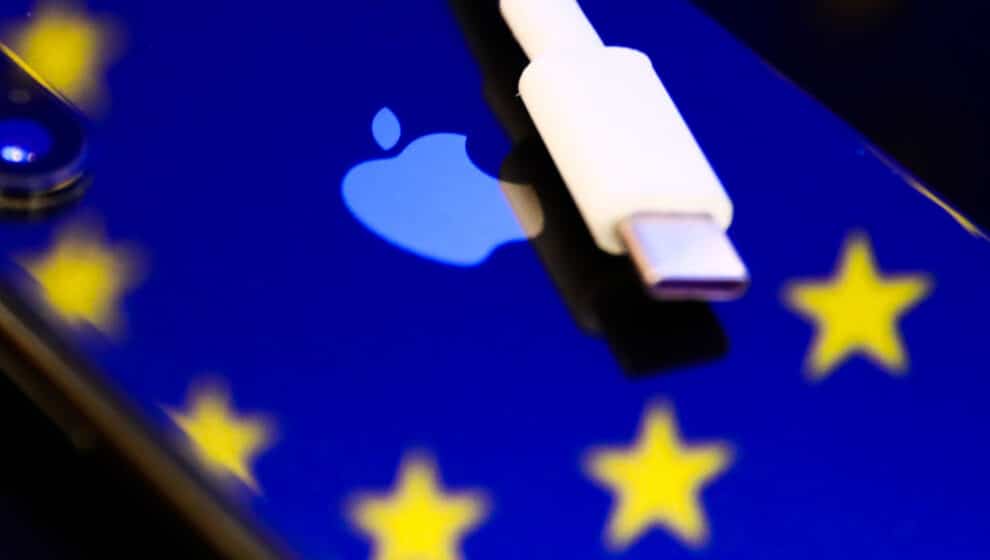Apple has surrendered to the European Union’s (EU) new laws on cable standardization, forcing it to offer USB-C charging cables.
Key Details
- Speaking at a Wall Street Journal conference on Tuesday, Apple marketing chief Greg Joswiak says the company will comply with the EU’s laws.
- “Obviously we will have to comply. We have no choice, as we do around the world, to comply with local laws, but we think the approach would have been better environmentally and better for our customers to not have a government be that prescriptive,” says Joswiak.
- “He said Apple and the EU had been at odds over chargers for a decade, recalling how European authorities once wanted Apple to adopt Micro-USB,” Bloomberg reports.
- “He said that neither Lightning—the current iPhone charging port—nor the now-ubiquitous USB-C would have been invented if that switch had occurred,” Bloomberg continues.
- EU parliament gave final approval to the standardization law on Monday that forces electronics developers to exclusively use USB-C chargers for phones and tablets by 2024.
Why it’s News
As we previously reported, EU Parliament voted in a 602-to-13 vote on October 4 to standardize USB-C connectors in 27 EU nations in an effort to reduce generated waste and make it easier for consumers.
“EU lawmakers contend the rules will reduce waste as consumers do not need to buy a new charger every time they purchase a device. The EU said this will reduce production and the disposal of new chargers,” says CNBC.
Apple was likely to be the hardest hit by the standardization, as most of their devices run off of different charging cables. The current models of the iPhone 14 use lightning cables while laptops and other devices use USB-C.
Possible Solutions
The company though is already ahead of the curve and will likely switch the upcoming iPhone 15 to USB-C preemptively.
“Apple is planning to switch the iPhone to USB-C next year. The law goes into effect in 2024. Apple has already moved its Macs, many iPads, and accessories to USB-C from Lightning and other connectors,” says Bloomberg.
“Apple is likely to introduce the standard globally, not just in the European Union,” says CNBC.
The company, which has publicly lobbied against the law, may eventually escape the EU’s new laws by going wireless and transitioning all of its new products to inductive charging.
